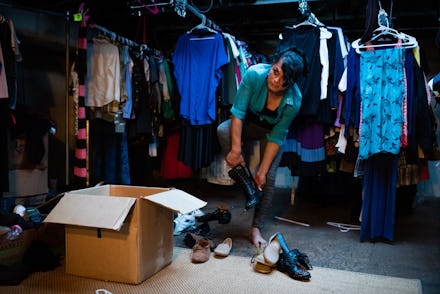D.C. cut funding for this queer youth emergency shelter and now it's facing closure

Housing insecurity is an urgent issue for queer people. The U.S. government estimates that between 20-40% of houseless youths are LGBTQ+. Despite this harsh reality, it has been notoriously difficult for shelters that serve queer people to get public funding. But Casa Ruby, a bilingual LGBTQ+ community center in D.C. that also provides emergency housing, is a rare case. Casa Ruby has received government funding for years, but it has now been revoked and the organization is facing shutdown. Why is D.C.’s Department of Human Services (DHS) revoking the funding of this LGBTQ+ emergency homeless shelter in the middle of a pandemic?
Casa Ruby is a nonprofit that has been serving the LGBTQ+ youth in D.C. since 2012. It started as a small volunteer-run community center. The founder of Casa Ruby, a trans woman named Ruby Corado, initially funded the program using the money she got from winning a disability case after surviving a murder attempt, them. reported. Now Casa Ruby has more than 100 employees, shelter beds in seven locations in D.C., and offers everything from health to counseling services, according to the Washington Post.
Casa Ruby has recently been partially funded by D.C.’s DHS. The organization fully expected that their $850,000 grant would be renewed, but they were informed Friday that the grant was being revoked. This has given Casa Ruby less than a week’s notice to find funding to pay for a 50-bed emergency housing shelter, the Post reported. According to the outlet, Casa Ruby could be forced to shut down as soon as October 1st.
For their part, DHS claims that funding for LGBTQ+ youth is not being decreased, it’s just not going to Casa Ruby. “DHS is committed to the safety and well-being of youth, including LGBTQ+ youth, who we know disproportionately experience homelessness. Grant renewal decisions are based on ensuring accountability and continuity of quality services and the safety of our residents,” Laura Zeilinger, director of D.C.'s DHS, wrote in a press release regarding the grant revocation.
Casa Ruby’s financial operations are not without controversy. In 2014, Casa Ruby reported revenue of $261,725, with Corado earning $31,895 of that. In 2019, the Casa Ruby took in almost $3.5 million, and Corado was earning almost $250,000, reported the Post. Despite these earnings, the Casa Ruby’s landlord says the organization hasn’t paid rent since 2018. The insinuation of this seems to be that Corado is making money and not paying Casa Ruby’s bills.
Personally, I really wish that trans women were getting rich on the backs of predatorial capitalist landlords who make money off homeless shelters. That doesn’t really seem like what’s happening, though.
To wit, Corado filed a discrimination claim against DHS in March, the Post reported. The complaint states that the official at DHS who was in charge of overseeing Casa Ruby’s grant allegedly behaved in an abusive and discriminatory way toward Corado and other Casa Ruby employees and violated DHS COVID protocols, reported the Washington Blade.
In May, Corado was informed that Casa Ruby’s funding could be decreased by up to 50% for failure to provide a sufficient number of beds, a claim which Corado disputed. Corado told the Blade in June that she thought the proposed funding cut was retaliatory and that DHS had been withholding funding for four months (since the discrimination claim was filed).
This is not a black and white case. Like with so many organizations that operate within the nonprofit industrial complex, the giant roll of red tape surrounding Casa Ruby makes everything seem a bit murky. Regardless, it seems profoundly unjust that houseless queer people will likely be denied necessary services and that the more than 30 employees of Casa Ruby — also predominantly queer and TGNC people — will lose their jobs due to bureaucratic mess. Casa Ruby has started a GoFundMe for $75,000 in order to fund their operations through October.